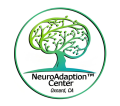Sports Injury Rehabilitation in Oxnard: Reclaim Your Game with NeuroAdaption Therapy
At the NeuroAdaption Center in Oxnard, CA, we understand how devastating a sports injury can be, whether you’re a professional athlete or a weekend warrior. Our specialized Sports Injury Rehabilitation program is designed to help you recover quickly and safely, so you can return to the activities you love. With our advanced techniques, cutting-edge technology, and personalized care, we’re here to support you every step of the way.
Common Sports Injuries We Treat
Sports injuries can occur in any sport or physical activity, and our team is experienced in treating a wide range of conditions, including:
- Sprains and Strains: Injury to ligaments (sprains) or muscles and tendons (strains) that often occur in sports requiring sudden movements.
- ACL and MCL Injuries: Tears or strains in the ligaments of the knee, commonly seen in sports like soccer, basketball, and football.
- Tendonitis: Inflammation of the tendons, often affecting the elbows (tennis elbow), shoulders (rotator cuff tendonitis), and knees (jumper’s knee).
- Fractures: Broken bones that require careful rehabilitation to restore strength and mobility.
- Dislocations: Joints that have been forced out of their normal position, requiring realignment and stabilization.
- Shin Splints: Pain along the shinbone, commonly experienced by runners and athletes involved in high-impact sports.
- Concussions: Brain injuries caused by a blow to the head, requiring a careful and monitored rehabilitation process.
- Rotator Cuff Injuries: Tears or strains in the shoulder muscles, often seen in overhead sports like swimming, baseball, and tennis.
Our Approach to Sports Injury Rehabilitation
1. Comprehensive Assessment and Diagnosis
Our Sports Injury Rehabilitation process begins with a thorough assessment of your injury. Using advanced diagnostic tools, our team will evaluate the extent of your injury and develop a detailed understanding of its impact on your performance and daily life. This assessment allows us to create a personalized treatment plan that addresses your specific needs.
2. Customized Rehabilitation Plans
At the NeuroAdaption Center, we know that no two injuries are the same. That’s why we create a customized rehabilitation plan tailored to your unique injury, sport, and recovery goals. Your plan may include:
- NeuroAdaption Therapy: Our patented, FDA-certified orthotic device engages task-specific motor movements to strengthen and rehabilitate the injured area. This non-invasive technology accelerates recovery by recruiting large motor neurons and enhancing neuromuscular function.
- Physical Therapy: Targeted exercises, stretching, and manual therapy techniques designed to restore strength, flexibility, and range of motion in the injured area.
- Sports-Specific Training: Exercises and drills that mimic the movements and demands of your sport, helping you regain the skills needed for peak performance.
- Pain Management: Techniques to alleviate pain and inflammation, including manual therapy, ultrasound therapy, and other modalities.
- Injury Prevention Education: Guidance on proper techniques, warm-ups, and exercises to prevent future injuries and enhance overall athletic performance.
3. Return-to-Sport Progression
Our goal is to help you return to your sport as quickly and safely as possible. We use a structured, phased approach to guide your progression, ensuring that you are fully recovered before resuming full activity. This includes:
- Functional Movement Training: Exercises that simulate the demands of your sport, helping you regain coordination, balance, and agility.
- Strength and Conditioning: Building strength and endurance in the injured area to withstand the stresses of your sport.
- Gradual Return to Play: A step-by-step plan that reintroduces you to your sport at a controlled pace, minimizing the risk of re-injury.
Why Choose NeuroAdaption Center for Sports Injury Rehabilitation?
Expertise in Sports Medicine
Our team includes specialists with extensive experience in sports medicine and rehabilitation. We understand the unique challenges athletes face and are committed to helping you achieve a full recovery.
Cutting-Edge Technology
The NeuroAdaption system is a breakthrough in rehabilitation technology. By placing your body in a state of hypergravity, it enhances neuromuscular function, accelerates recovery, and delivers results that are often noticeable within minutes.
Personalized Care
At NeuroAdaption Center, you’re not just another patient—we treat you as an individual with unique needs and goals. Your rehabilitation plan is tailored to your specific injury, sport, and recovery timeline, ensuring the best possible outcomes.
Holistic Approach
We believe in treating the whole athlete, not just the injury. Our holistic approach to rehabilitation considers all aspects of your health and well-being, from physical fitness to mental resilience, helping you return to your sport stronger than ever.
Get Started with Your Sports Injury Rehabilitation Today
Don’t let a sports injury keep you on the sidelines. At the NeuroAdaption Center, we’re here to help you recover and return to the activities you love. Contact us today to schedule an appointment and take the first step towards a full recovery.
